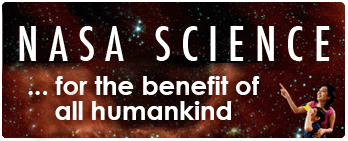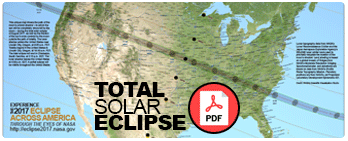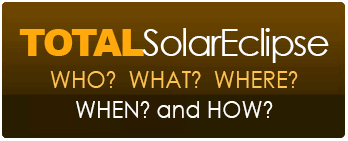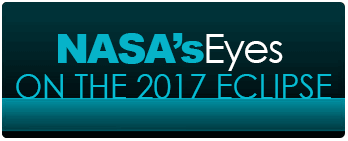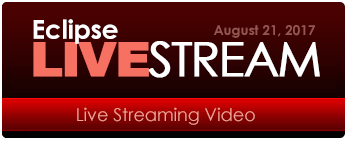Informal Education
These include science museums, planetaria and public libraries, or other informal settings such as after-school or at-home venues. Our eclipse resources covering activities along the eclipse path, geotagging, and math activities can be an exciting introduction to eclipse science as a participatory activity.
STAR Library Education Network
The STAR Library Education Network (STAR_Net) wants to work with public libraries across the U.S. to participate in this national event. Some fortunate libraries will be able to experience a total solar eclipse, though every library in the country will observe at least a partial eclipse. When your eclipse event is planned, you can share your press release, flyer, website link or other promotional material with the STAR_Net team to receive 50 free Solar Shades for your patrons to watch the eclipse! (Shades are available on a first come, first serve basis.)
Eclipse Guide
The Eclipse Guide for Libraries can be downloaded from the link below. It has lots of useful information for all communities to benefit from in preparing for a successful eclipse event. Link: http://www.starnetlibraries.org/EclipseGuide/
NASA Museum Alliance
The NASA Museum Alliance is a NASA-funded STEAM "community of practice," comprising of informal educators, staff, and leadership. This includes all informal educational organizations, namely, all those outside of the traditional K-12 school system, including museums, planetariums, observatories, youth groups, after school programs, and many more. See our About page for further information including a link to register.
The Alliance offers free, member-only NASA professional development for informal education professionals, all recorded and archived for viewing. Members can use these professional developments with included materials to support any event, such as our series of eclipse-related teleconferences and webinars. We also offer many public resources for anyone to engage audiences in STEAM topics and events, such as our eclipse resources for informal education. In addition, the Alliance offers networking and collaborations with other member organizations worldwide, and personal assistance navigating NASA’s vast library of educational resources. The Museum Alliance even has the Competitive Program for grants to informal education institutions. Click here to explore a map of over 800 NASA Museum Alliance members worldwide, to find a place to celebrate the eclipse, no matter where you are.
The National Informal STEM Education Network
The National Informal STEM Education Network (NISE Net) is a community of informal educators and scientists dedicated to supporting learning about science, technology, engineering, and math (STEM) across the United States. NISE Net's Space and Earth Informal STEM Education (SEISE) project, part of the NASA SMD SciAct Collaborative, is raising the capacity of museums and informal science educators to engage the public in Heliophysics, Earth Science, Planetary Science, and Astrophysics, and their social dimensions. The project is creating hands-on activity toolkits (250 toolkits per year over four years), small footprint exhibitions (50 identical copies), and professional development opportunities including online workshops. Toolkits and exhibitions will be available to new and existing NISE Network partners through a competitive application process.
NISE Net's 2017 Explore Science: Earth & Space toolkit includes planning and educational materials related to the 2017 total solar eclipse. A digital version of the 2017 Explore Science: Earth & Space toolkit is available for free download here.
The toolkit includes several hands-on activities for public audiences that are related to the 2017 solar eclipse, including:
- Exploring Earth: Bear's Shadow (also in Spanish!)
- Exploring the Solar System: Big Sun, Small Moon (also in Spanish!)
- Exploring the Solar System: Solar Eclipse (also in Spanish!)
- Eclipse Pinhole Postcard (also in Spanish!)
Interpreting the Total Solar Eclipse of 2017
This series of 8 webinars provides opportunities for interpreters and other informal educators to:
- Learn from NASA experts about the science and mechanics of a total solar eclipse, the nature of our Sun, recent research about Earth’s Moon, and how the Sun-Earth-Moon system interactions affect life on our planet
- Learn about and gain access to a variety of eclipse-related hands-on activities and many NASA eclipse resources
- Explore ideas about interpreting the eclipse, including ways to tie this amazing celestial event to natural and cultural themes at your site, and
- Gain tips for viewing and photographing the eclipse.
To access the webinars and related materials, log in tohttp://www.earthtosky.org
Collection of Eclipse Resources and Activities for Interpreters
The total solar eclipse presents a unique opportunity to engage visitors about our Sun, Moon, Earth and Solar System; to contemplate our place in the universe; and to link the eclipse experience with the natural and cultural history of interpretive sites. We’ve selected these resources and hands-on activities specifically for interpreters working with large and small groups, both inside and outside the path of totality.




